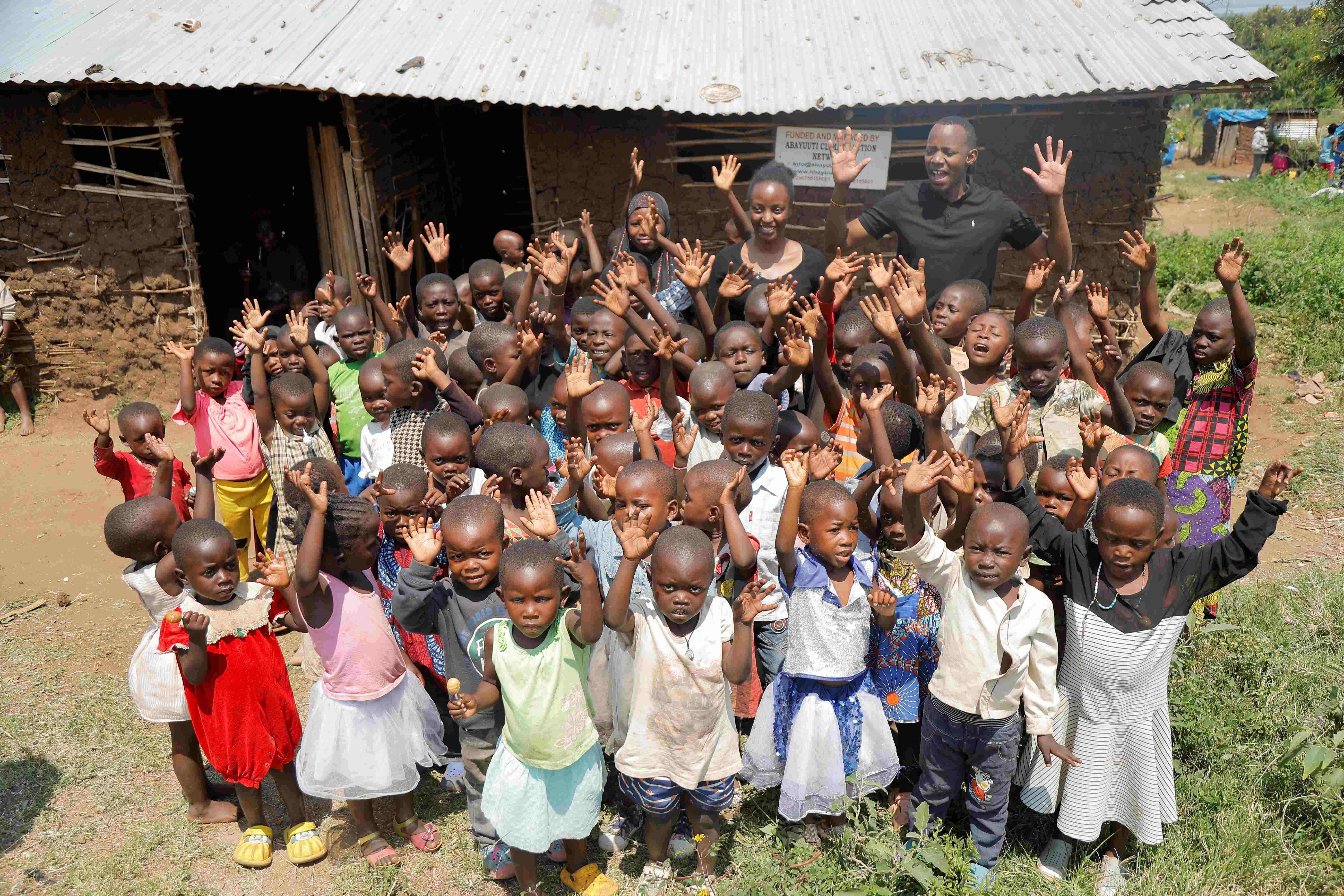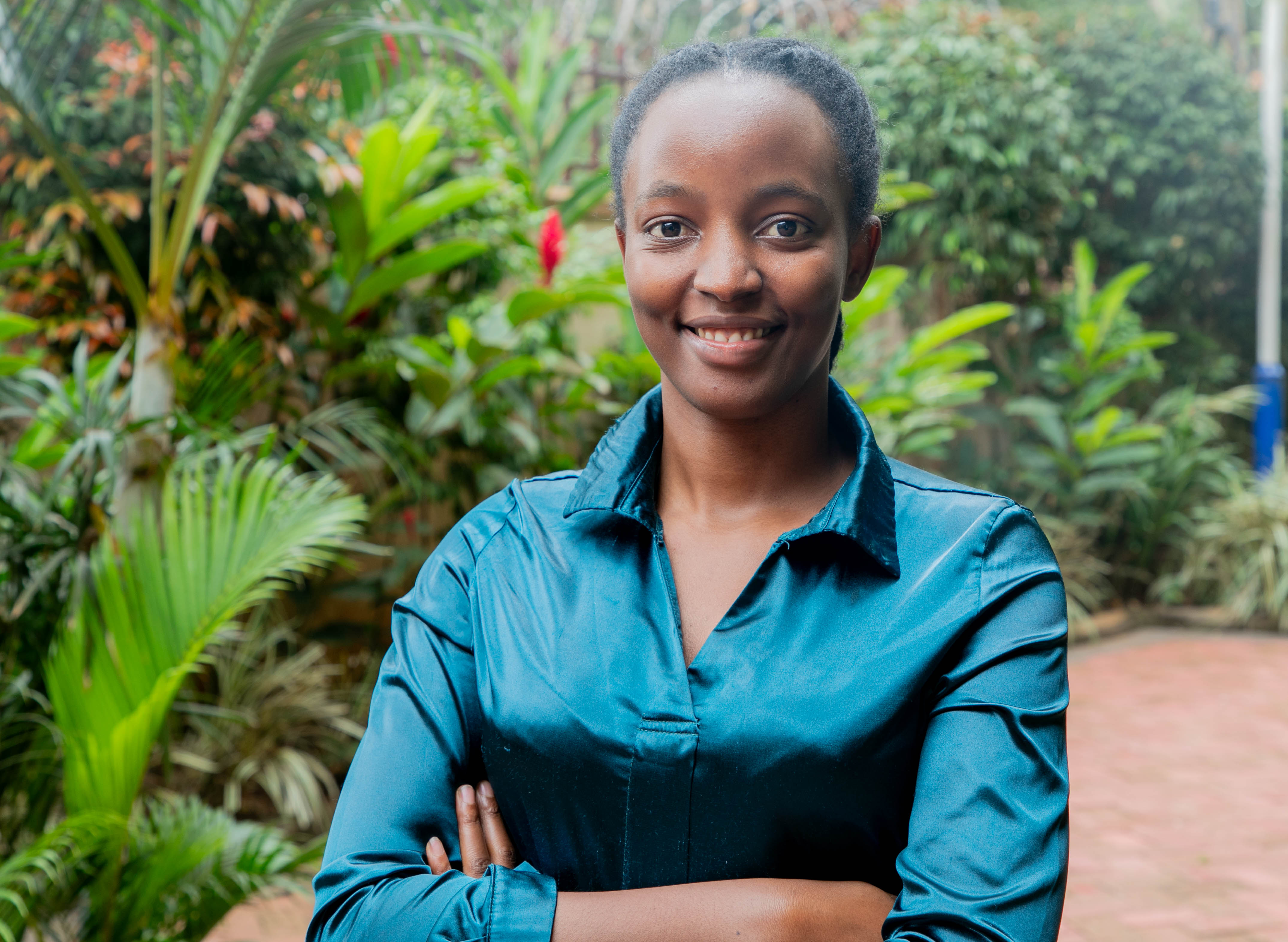When the floods first struck, over 5,000 people were displaced (UNICEF, 2020). Families sought refuge in schools, including Muhokya Primary School, which was turned into a temporary shelter. While this provided safety, it came at a cost - education was disrupted, and many displaced children never returned to school. Today, many are still out of the classroom, forced into child labour, early marriage, or left vulnerable to exploitation.
A young girl in Muhokya shared her story:
"After the floods, everything changed. Many of my friends were married off because their parents couldn't take care of them. Others work in markets or on farms. Some men take advantage of us because they know we are desperate."
Her words are a painful reminder of how displacement leaves girls at even greater risk. When education is out of reach, their future is stolen before they have a chance to shape it.
Floods and displacement are no longer isolated disasters in Uganda. In Kasese, they are beginning to happen almost every year as temperatures continue to melt glaciers and rains become more erratic. Floods are not just water overflowing, they destroy homes, livelihoods, and schools. In Bulambuli District, landslides in 2024 demolished a primary school, killing 15 children (Al Jazeera, 2024). The increasing frequency of climate disasters is turning displacement into a permanent reality, robbing children of their right to learn in a safe environment.
But amid these challenges, there is hope.
The Abayuuti Climate Action Network has set up a nursery school in Muhokya, providing education for over 100 displaced children whose families cannot afford formal schooling. While meant for children aged 3 to 7 year, some as old as 12 years are still attending the school because their families have no other options. This small initiative proves that even in the toughest circumstances, education is possible. But the demand far outweighs the resources available, and children need more than a temporary fix.
I believe education is not just about literacy and numeracy. It is about preparing children for the world they are inheriting. The floods that displaced them were not a natural disaster as some people say but rather an evidence for our lack of action on climate change and economic inequality. That is why climate education must go hand in hand with formal learning. Imagine a child in Muhokya learning not just to read and write but also about sustainable farming, ecosystem conservation, disaster preparedness, and the science behind the floods that displaced them. This knowledge is not a luxury, it's becoming core for communities to survive and thrive.
The children of Muhokya, and millions of others displaced by climate change, cannot wait any longer. They need schools that reach them where they are - mobile learning centres, they need access to basic needs, flexible education programmes, and community-led initiatives that ensure no child is left behind. They need climate-inclusive education, so they understand and respond to the forces shaping their lives. They need long-term resettlement solutions, so their education is not interrupted year after year. They need safe spaces, where they are protected from abuse and exploitation.
The burden of addressing this crisis cannot only fall on small community initiatives alone. Governments, donors, and global education actors must prioritize education for displaced and mobile children. This means building schools that can withstand climate disasters, creating mobile and flexible learning programmes for children on the move, and ensuring that climate education becomes part of national curricula. It means recognizing education not just as a development goal but as an urgent humanitarian response - one that must be delivered in the same way as food, water, and shelter. It also means that we need funds, policies and strategies that prioritise displaced children and those on the move. We need governments, UNICEF, NGOs, donors, civil society organisations, activists, private companies and youth to step up for the rights of children in the context of climate change.


We must not continue to leave these children behind. The time to act is now!
References:
1. African Union. (2022). Community-Led Education Initiatives in Africa.2. AL-JAZEERA. (2024). At least 15 killed, more than 100 missing as landslides bury Uganda homes.
3. Girls Not Brides. (2022). Ending Child Marriage in Uganda: Lessons Learned.
4. Plan International. (2021). Child Marriage and Climate Change: A Growing Crisis in Uganda.
5. Ugandan Ministry of Education. (2023). Access to Education in IDP Camps: Challenges and Opportunities.
6. UNESCO. (2020). Global Education Monitoring Report: Inclusion and Education.
7. International Rescue Committee (IRC). (2023). Psychosocial Support Programs in Ugandan IDP Camps.
8. UNFCCC. (2021). Youth Engagement Strategy for Climate Action.
9. UNICEF Uganda. (2022). Education in Emergencies: Addressing the Needs of Displaced Children.
 *
Rose Kobusinge is a Ugandan Climate Action activist and advocate. She possesses a masters in Environmental Change and Management from the University of Oxford and a BSc in Environmental Science from Makerere University Uganda.
*
Rose Kobusinge is a Ugandan Climate Action activist and advocate. She possesses a masters in Environmental Change and Management from the University of Oxford and a BSc in Environmental Science from Makerere University Uganda.